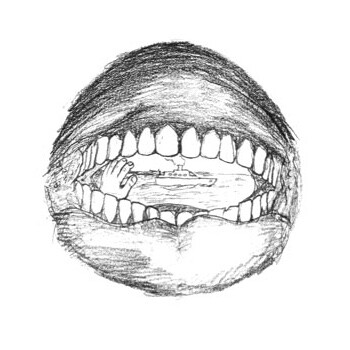April 11, 2009
Unlike unrealized architectural projects, which are frequently exhibited and circulated, unrealized artworks tend to remain unnoticed or little known. But perhaps there is another form of artistic agency in the partial expression, the incomplete idea, the projection of a mere intention? Starting on Saturday, April 11th, the book project Unbuilt Roads: 107 Unrealized Projects will be presented as a public archive at e-flux. Bringing together descriptions of unrealized projects by 107 artists, the selection constitutes the result of several years of international research conducted in the late 90s by Obrist and Guy Tortosa. The archive will remain on view through Saturday, May 16th.
Though the state of being unrealized implies the potential for realization, not all of the 107 projects were meant be carried out. Certain works have deliberately been left undone by the artists, although they have “failed” in very interesting ways. Other planned projects involve consciously utopian, non-utilitarian, and conceptual spaces that were not made available for realization. Whether censored, forgotten, postponed, impossible, or rejected, these unrealized projects form a unique testament to the speculative power of non-action. As Joel Fisher suggested in his essay “The Success of Failure,” “The failures of big ideas are sometimes more impressive than the successes of little ones.”
Unbuilt Roads includes contributions from Vito Acconci, Laurie Anderson, Siah Armajani, John Armleder, Lothar Baumgarten, Larry Bell, Guillaume Bijl, Dara Birnbaum, Alighiero Boetti, Christian Boltanski, Louise Bourgeois, Joan Brossa, Chris Burden, Daniel Buren, Cai Guo-Qiang, Maurizio Cattelan, Dinos & Jake Chapman, Christo and Jeanne-Claude, Constant, Critical Art Ensemble, Stefan Demary, Erik Dietman, Jimmie Durham, Maria Eichhorn, Ayşe Erkmen, Hans-Peter Feldmann, Peter Fend, Peter Fischli/David Weiss, Sylvie Fleury, Katharina Fritsch, Gautel/Karaindros, Frank O. Gehry/Richard Serra, General Idea, Isa Genzken, Paul-Armand Gette, Jef Geys, Gilbert & George, Simryn Gill, Liam Gillick, Leon Golub, Douglas Gordon, Dan Graham, Joseph Grigely, Victor Grippo, Hans Haacke, Mona Hatoum, Thomas Hirschhorn, Carsten Höller, Ulrike Holthöfer, Jenny Holzer, Huang Yong Ping, Pierre Huyghe, Fabrice Hybert, Robert Irwin, Ilya Kabakov, Allan Kaprow, Tadashi Kawamata, Per Kirkeby, Yves Klein/Werner Ruhnau, Alison Knowles, Koo Jeong-a, Jannis Kounellis, David Lamelas, Bertrand Lavier, Ange Leccia, Lee Ufan, Sol LeWitt, Gilles Mahé, Christian Marclay, Fabio Mauri, Cildo Meireles, Gustav Metzger, Jonathan Monk, Robert Morris, Tania Mouraud, Bruce Nauman, Claes Oldenburg, Gabriel Orozco, Tony Oursler, Giuseppe Penone, Manfred Pernice, Steven Pippin, Michelangelo Pistoletto, Hermann Pitz, Markus Raetz, Robert Rauschenberg, Tobias Rehberger, Jason Rhoades/Raymond Pettibon, Ulrich Rückriem, Allen Ruppersberg, Edward Ruscha, Joe Scanlan, Gregor Schneider, Gary Simmons, Yutaka Sone, Nancy Spero, Rirkrit Tiravanija, Rosemarie Trockel, Uri Tzaig, herman de vries, Jeff Wall, Lois Weinberger, Richard Wentworth, Franz West, Stephen Willats, Jeffrey Wisniewski, Krzysztof Wodiczko, and Jonas Mekas.
Unbuilt Roads is the first in a new series of exhibitions at e-flux project space at 41 Essex Street, lower level. The space is open to the public from Tuesday through Saturday, 12-6 PM.
Opening reception: Saturday, April 11, 6-8 PM.
Hans Ulrich Obrist and e-flux would like to thank The Drawing Center, Sydney Hart, Hatje Cantz Publishers, Bettina Korek (Producer, Future Projects), Karen Marta (Coordinator, Future Projects), Eva McGovern (Inspire Fellow, Serpentine Gallery), Carlos Motta, Julia Peyton-Jones (Director, Serpentine Gallery), Tim Ridlen, Sally Tallant (Head of Programmes, Serpentine Gallery), and Mila Zacharias.
Reviews
“Go See: Unbuilt Roads, a Survey of Nonexistant Art”, Art We Love • Sarina Basta
The history of art is littered with projects that never saw the light of day, from the more fantastical inventions filling da Vinci ‘s notebooks to a never-made film collaboration between Andy Warhol and Marcel Duchamp . For “Unbuilt Roads,” curator Hans Ulrich Obrist has assembled over one hundred proposals for such thwarted works by…
The history of art is littered with projects that never saw the light of day, from the more fantastical inventions filling da Vinci‘s notebooks to a never-made film collaboration between Andy Warhol and Marcel Duchamp. For “Unbuilt Roads,” curator Hans Ulrich Obrist has assembled over one hundred proposals for such thwarted works by contemporary artists, displaying them in blue diazo prints on the walls of E-Flux’s Essex Street space through May 16 (see exhibition view below).
Some of the projects–originally collected in the book Unbuilt Roads: 107 Unrealized Projects, edited by Obrist and Guy Tortosa–were derailed because of the quasi-impossible conditions they would require. British artist Jonathan Monk, for instance, suggested in 1990 that the city of Glasgow relocate the pyramids of Gaza to a Scottish park. Cai Guo-Qiang‘s once wanted the United Nations to have everyone on the planet turn their lights off in synch. (“We humans should give the Earth a rest,” he wrote. “Let her return to the universe, dark and quiet like the other planets.”) Other works were realized years later in a different form, such as a T-shaped catwalk by Sylvie Fleury that was eventually exhibited in a museum rather than outdoors as originally intended. A piece by Nancy Spero using the Aztec quote “Child birth is our mortality, we who are women, for it is our battle” as a pro-choice slogan for a 1986 art event was in fact printed on a banner, but then censored before being shown.
No matter the end result, many of these proposals can be seen as works of art in their own right. Gabriel Orozco’s rejected design for his “Acquapracasa,” an architectural housing project with a semi-circular pool, looks… like a Gabriel Orozco print (see below). And Rirkrit Tiravanija‘s hilarious 1993 proposal for a piece requiring a museum director to work in a replica of his office moved onto the open floor of the museum (“as he would in his normal daily routine”) communicates its irreverent idea clearly. The museum’s response? “Silence,” Tiravanija writes. “I was not included in the exhibition.”
—April 20, 2009
